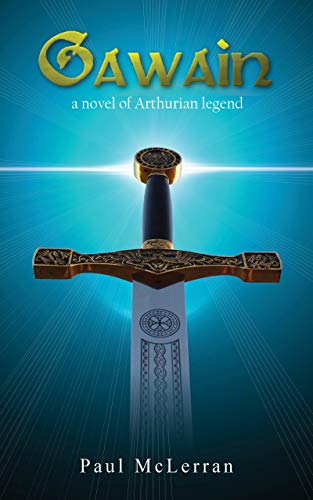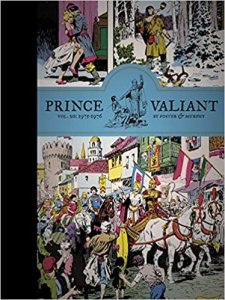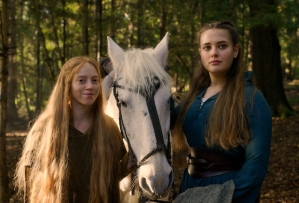Historian Bernard Jones has written a fascinating new book, The Voyage of Aeneas of Troy, which reveals that Virgil’s Aeneid was probably not original to Virgil but based on historical fact and a centuries-old poem he may have received orally or in written form that dated back a thousand years. In fact, Jones argues that every detail of The Aeneid can be traced as geographically accurate, which by extension strongly suggests it is not based on just a legend but a historical voyage. Most surprising of all, the events of The Aeneid did not take place in the Mediterranean as commonly believed and as the poem indicates; by analyzing the poem’s geographical references, Jones discovered it was originally set in ancient Britain and its surrounding seas.
The Voyage of Aeneas of Troy is the sequel to Jones’ earlier book The Discovery of Troy and Its Lost History. In that book, he made a similar argument that Troy was actually in ancient Britain, even arguing that Homer was himself British. Here, he continues the argument, describing how Aeneas and his companions fled from Troy and traveled about Britain and the North Sea into areas like the modern-day Netherlands before returning to Britain and establishing a new Trojan civilization. In time, Aeneas’ descendants, including Brutus for whom Britain is named, also traveled and made new settlements. Over time, some of the descendants traveled to what are the modern-day Netherlands and Belgium and some of them became ancestors to the Franks. These groups, as they moved south through Europe, would have provided an opportunity for Virgil to hear the story of The Aeneid and record it in writing, perhaps for the first time. However, for whatever reason, Virgil chose to alter or slightly disguise place names to equate the British places in the original poem with those in the Mediterranean. Jones also notes that Virgil never finished The Aeneid but was revising it at the time of his death; he asked that it be destroyed, which might have happened if the Emperor Augustus had not decided it should be preserved. We may never know if Virgil wanted the poem destroyed to keep secret the actual locations mentioned in the poem, or if he just felt artistic angst over an incomplete work being read by the world.
How Virgil might have gained access to the poem and why he decided to transfer the action to the Mediterranean may never be known. Jones argues that the poem intentionally contains a secret code that was intended to hide the geographical details of the poem but that also reveals the true map of Aeneas’ voyages. In fact, Jones goes to great lengths to determine the physical distances from one place to the next that Aeneas traveled. The Aeneid does not discuss miles or kilometers but it does give directions—east, west, two days’ journey, etc.—that do not match the distances from one place to another in the Mediterranean, but they do match the distances in Britain.
As for place names, the similarities between many places in Britain and in the Mediterranean is astounding. For example, the Scilly Isles in Britain are disguised as Sicily in The Aeneid. The geographical features of specific parts of both areas are also similar. Jones discusses how Scotland, when turned upside down, resembles the Peloponnese and maps in the book show how the Bristol Channel is similar to the Adriatic Sea. Jones provides numerous maps throughout the book as well as charts showing place names and their meanings.
Some of the places in The Aeneid, of course, seem to be mythical, but Jones provides geographical locations even for these. Charybdis, the famous whirlpool encountered by both Aeneas and Odysseus in The Odyssey, does not actually exist in the Mediterranean, but Jones makes a compelling argument for it existing at Mount’s Bay off Land’s End. The cliffs of the Sirens turns out to be the Needles off the Isle of Wight.
I will confess my knowledge of Mediterranean and even British geography leaves much to be desired, and I am sure this book will be controversial, but I cannot help admiring the years of in-depth research Jones invested to write this book. He takes into account everything from sea levels three thousand years ago to descriptions in The Aeneid that he followed almost religiously as a guide to try to create comparisons between them and the landscape of Britain. He was amazed himself by the similarities and revelations he discovered.
Even if you end up being skeptical of Jones’ research, I think he makes a compelling argument. I also found it enjoyable to revisit the story of Aeneas and be reminded of his many adventures and how they might have taken place in Britain. Modern scholars tend to assume many of the genealogical claims of our ancestors, such as Brutus founding Britain, are fake and were created in the wake of Christianity to tie different peoples to a greater biblical narrative so everyone could be neatly shown to be descended from the sons of Noah, as argued in Anthony Adolph’s book Brutus of Troy and the Quest for the Ancestry of the British. However, archeologists have made surprising finds in the historical record based on paying closer attention to ancient works they assumed were only metaphorical. Furthermore, it can’t be denied that the Normans and Anglo-Saxon invasions led to the loss and repression of much that the ancient Britons knew and believed to the point where even speaking and reading Welsh was outlawed into the nineteenth century. The jury may still be out on whether Aeneas’ journeys were in Britain rather than the Mediterranean, but I think The Voyage of Aeneas of Troy is a book that deserves to be read and discussed, and as Jones himself is the first to assert, much more research remains to be done to confirm many of his beliefs. We may never know the full truth, but just like with the legend of King Arthur, who is an alleged descendant of Aeneas, the possibilities are fascinating, and the more effort we make to learn the truth, the more we learn about the past, even if the truth itself remains elusive.
I hope you will take this chance to journey with Aeneas again or even for the first time and discover how truly remarkable a work The Aeneid is with Jones as your tour guide.
For more information about Bernard Jones and his works on ancient Troy and Aeneas, visit https://www.trojanhistory.com/
____________________________________________
Tyler Tichelaar, PhD, is the author of The Children of Arthur series, which includes the novels Arthur’s Legacy, Melusine’s Gift, Ogier’s Prayer, Lilith’s Love, and Arthur’s Bosom. He has also written the nonfiction scholarly work King Arthur’s Children: A Study in Fiction and Tradition, books on Gothic literature, and many historical novels and history books about Upper Michigan. You can learn more about Tyler at www.ChildrenofArthur.com, www.GothicWanderer.com, and www.MarquetteFiction.com.
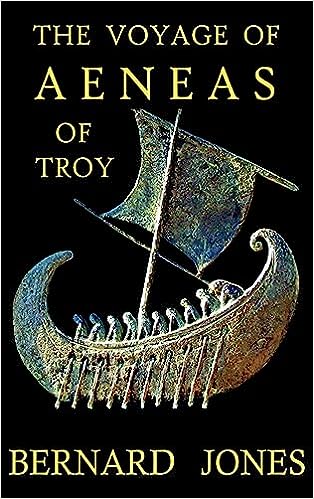




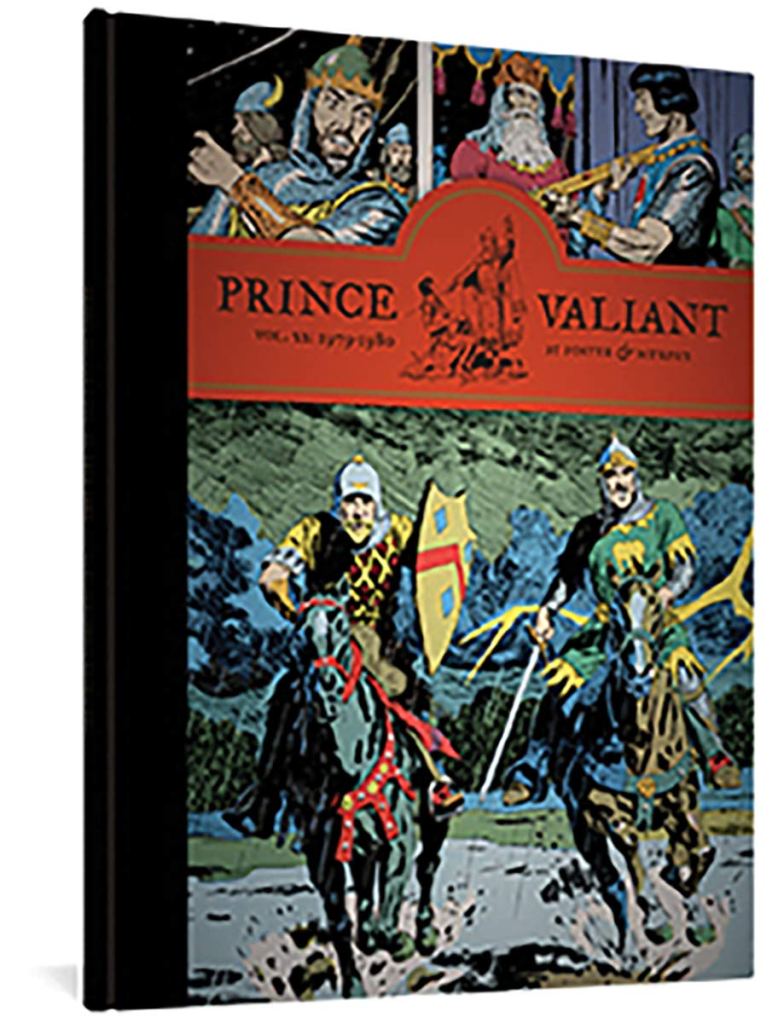

 First off, the film is badly titled. Merlin makes an appearance, but it’s pretty brief and not super-integral to the plot. If he had been left out it, it would have been no great loss. The subtitle is ridiculous since it suggests Arthur and Merlin are Knights of Camelot, but one is a king and the other a wizard. The knights are in the film but it’s not about them either. A better title would have been Arthur and Mordred or Mordred and Guinevere.
First off, the film is badly titled. Merlin makes an appearance, but it’s pretty brief and not super-integral to the plot. If he had been left out it, it would have been no great loss. The subtitle is ridiculous since it suggests Arthur and Merlin are Knights of Camelot, but one is a king and the other a wizard. The knights are in the film but it’s not about them either. A better title would have been Arthur and Mordred or Mordred and Guinevere.